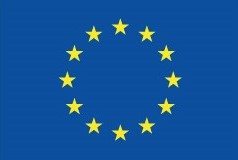- Home
- EuroDairy – Research and policy development needs in relation to socio-economic resilience
EuroDairy – Research and policy development needs in relation to socio-economic resilience
This page summarises research and policy development needs in relation to socio-economic resilience. It has been collated from feedback obtained during workshops, preparation of technical reports, farmer exchange visits and operational group interactions.
Micro-economic level
The micro-economic level of this report focuses on issues that affect individual dairy farmers and their companies. We want to formulate specific recommendations to stimulate the sustainability of dairy farms in the EU.
Fiscal and financial governmental tools
Positive fiscal regimes can stimulate the use of farm financial reserves as a buffer against periods of poor profitability. This is probably the most efficient way to counter (volatility) risks at farm level, because dairy farmers would then have a very important incentive to accumulate a financial buffer
Provisions in fiscal regimes to carry back/carry forward the losses or the benefits of a fiscal period. The goal of this tax strategy is to carry business tax losses in one year backwards, to a previous profitable year or forward to future years, which have a tax liability. Tax loss 'carry back' is a provision that allows an individual or a business to use a net operating loss in one year to offset a profit in one or more previous years. A tax loss 'carry forward' works the same as a tax loss ‘carry back’, carrying the tax loss over to a future year of profit.
Incentives, such as reporting or exemption of contributions for social or labour taxes, for operators with problems in liquidity. This measure can give dairy farmers more (financial) options to cope with low market prices
Support for liquidity: Persistent low prices or high costs can bring an operator into serious cash flow difficulty. Such farmers need to bridge the payment problems and should be able to use available bridging credits, dynamic cash flows, etc. The access to these options can be a challenge. Supporting measures of the Government (an investment guarantee fund) would help greatly. Greater flexibility from private banks would be an important additional support
Temporary increase of “de minimus support”. By regulation 1408/2013, the cumulative non-European support of governments to farms is capped at 15,000 euros over three years. In certain periods of crisis, this should be more flexible. It should open up to create incentives, for example, to restrict production or to bridge cash flow problems. This kind of support system is already used for the collection of old tyres
Government economic tools
Volumes for intervention to respond to low market prices. If used too early or too often, these measures might have a counterproductive effect in the mid to long term.
The use of this instrument should be available, as a last resort, through public tenders.
Macro-economic level
Macroeconomics focuses on issues that affect government and the economy as a whole.
Supply side: Restriction of production
Low market prices and margins should lead to lower production and bring the market back in balance. However, individual responses can be to do the opposite – to increase production in order to compensate and maintain overall income levels. This can have a further negative impact on market prices.
Giving a compensation to those farmers who voluntarily reduce their production volumes can break the negative cycle. Even a small effect on production can bring markets again into movement. This would be possible under the scheme of Art 222 of regulation 1308/2013, i.e. for long-lasting market imbalances.
Demand side: Improving the sale of products
There are several ways to improve the sale of EU dairy products in different parts of the world:
- Extra resources for promotion in third countries, thus making sure that we are also present in these markets
- Extra domestic promotion to increase consumption of dairy products
- Break down SPS barriers for export by investing in extra staff and infrastructure
- Exporting companies should be able to get export guarantees (insurances and warranties). Reaching new markets increases commercial risks; European export insurances should be able to counter these risks
- Support for investment and innovation: Specifically in hard times, investments for innovations or for cost-reduction activities, which should bring more efficiency and lower costs. European policy can make a huge difference in this aspect
Structural measures to improve the position of dairy farmers
It would be helpful to improve the position of dairy farmers in the supply chain and to respond to several risks that they face.
- Cooperation in producer and inter-branch organisations can be strengthened with appropriate adaptations to competition rules. Structural financial incentive for these producer organisations will help them reach their goals
- A framework for insurance schemes can reduce the risks for dairy farmers, which is necessary because agricultural markets will always be volatile. Europe can create a stronger framework of economic insurance schemes, like, for example, schemes which operate in the USA
- Develop futures for dairy to complement insurance schemes. Policy can stimulate the use of such tools
This project has received funding from the European Union`s Horizon 2020 research and innovation programme under grant agreement No 696364.
 Government logo
Government logo

